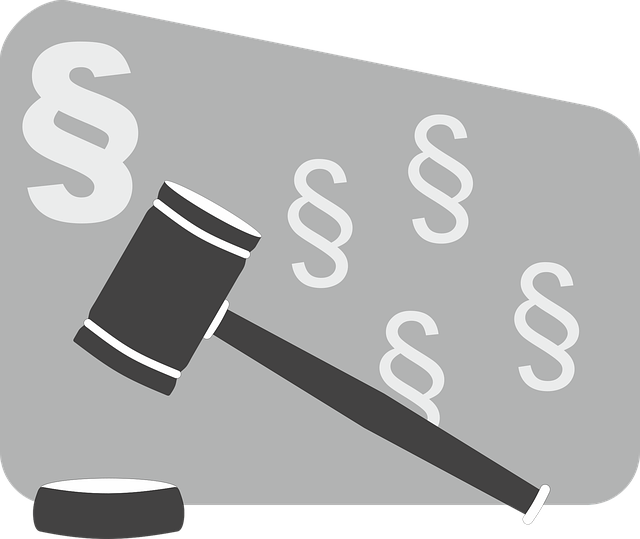The healthcare law landscape, encompassing patient privacy, consent, pharmaceutical regulation, and civil litigation, is complex yet vital for ensuring quality care and ethical standards. Understanding consumer rights within this framework is crucial for both patients and corporations to navigate regulatory hurdles, from insurance disputes to medical device regulations. Civil litigation serves as a key mechanism for resolving healthcare disputes, empowering patients to seek justice and hold providers accountable while promoting transparency and fairness. By grasping their rights, individuals can effectively advocate for themselves, participate in trials, and ensure optimal patient care standards across the industry.
In the dynamic landscape of healthcare, legal issues play a crucial role in shaping patient experiences. This article delves into the intricate world of healthcare law, offering an overview of key aspects that impact patient protection and delivery. We explore consumer rights as a cornerstone of patient safety, delve into civil litigation processes, and uncover common legal challenges. Additionally, we empower patients by clarifying their legal standing, emphasizing understanding consumer rights in civil litigation for informed decision-making.
- The Landscape of Healthcare Law: An Overview
- Consumer Rights: A Cornerstone of Patient Protection
- Civil Litigation: Unraveling the Process and Its Impact
- Common Legal Issues in Healthcare Delivery
- Empowering Patients: Understanding Your Legal Standing
The Landscape of Healthcare Law: An Overview

The landscape of healthcare law is vast and complex, encompassing a web of regulations designed to protect patients, ensure quality care, and maintain ethical standards. From patient privacy and consent laws to regulations governing pharmaceutical companies and medical devices, this legal sector plays a pivotal role in shaping the healthcare industry. Understanding these laws is crucial for both corporate and individual clients, as they navigate an increasingly regulated environment. Consumer rights in civil litigation are a significant aspect of this landscape, providing individuals with recourse when their healthcare rights are violated.
Across the country, healthcare attorneys work tirelessly to interpret and enforce these laws, achieving extraordinary results for their clients. They guide medical practices, hospitals, and pharmaceutical giants through intricate regulatory processes, ensuring compliance and minimizing legal risks. By staying abreast of legislative changes and judicial decisions, these legal professionals empower their corporate and individual clients to make informed decisions while maintaining the highest standards of patient care.
Consumer Rights: A Cornerstone of Patient Protection

Understanding Consumer Rights in Civil Litigation is paramount in safeguarding patient protection. In today’s complex healthcare landscape, consumers—or patients—have specific rights that are enshrined in law and protected by civil litigation. These rights serve as a cornerstone for holding healthcare providers, institutions, and corporations accountable for any breach of service or negligence that may arise. By understanding these consumer rights, both corporate and individual clients can better navigate high-stakes cases within the philanthropic and political communities.
The legal framework surrounding consumer rights in healthcare civil litigation is designed to ensure transparency, fairness, and access to quality care. This involves protecting patients from unfair practices, ensuring informed consent for treatments, guaranteeing privacy and confidentiality of medical records, and providing a mechanism for seeking redress in case of harm or dissatisfaction. Knowing these rights empowers patients to make informed decisions about their health while fostering trust between healthcare providers and the communities they serve.
Civil Litigation: Unraveling the Process and Its Impact

Civil litigation plays a pivotal role in healthcare legal issues, particularly when it comes to understanding consumer rights. This process involves resolving disputes between patients and healthcare providers or institutions through courts, focusing on breaches of contract, medical negligence, and other civil wrongs. It’s crucial for consumers to know their rights during this process, as it can significantly impact their health and financial well-being.
In the realm of civil litigation, patients assert their claims against healthcare entities, aiming for compensation or corrective actions. A successful outcome, often achieved through winning challenging defense verdicts, ensures accountability and can help prevent similar incidents in the future. General criminal defense strategies may be employed, but the focus shifts to civil remedies rather than criminal penalties. This process empowers individuals to seek justice and recover from potentially harmful healthcare experiences, ultimately fostering a culture of responsibility and patient safety.
Common Legal Issues in Healthcare Delivery

The healthcare industry faces a myriad of legal challenges due to its complex nature and constant evolution. From patient privacy rights to medical malpractice claims, understanding these issues is crucial for both healthcare providers and consumers. One critical aspect often in focus is Understanding Consumer Rights in Civil Litigation, ensuring patients are protected and have recourse when facing adverse outcomes or breaches of trust.
Common legal issues include insurance coverage disputes, regulatory non-compliance, and complex cases involving medical devices or pharmaceuticals. For his clients, navigating these challenges requires an unprecedented track record of successful advocacy, fostering a strong relationship between healthcare professionals and the philanthropic and political communities to shape policies that balance patient care, rights, and legal accountability.
Empowering Patients: Understanding Your Legal Standing

Understanding your legal standing as a patient is an empowering step toward navigating healthcare-related challenges. In civil litigation, consumers have specific rights that are crucial to know when dealing with medical disputes. This knowledge equips individuals to advocate for themselves effectively during all stages of the investigative and enforcement process, ensuring their voices are heard.
Familiarizing oneself with consumer rights in civil litigation empowers patients to take part in jury trials if necessary, making informed decisions and potentially securing justice. It’s about understanding your options, knowing what constitutes acceptable healthcare practices, and recognizing when your rights as a patient may have been violated. This awareness is a powerful tool for ensuring quality care and holding healthcare providers accountable.
Healthcare legal issues encompass a complex web of regulations designed to protect patients and ensure ethical practices. By understanding the landscape of healthcare law, consumers can better navigate their rights and responsibilities. Specifically, recognizing consumer rights and empowering patients through knowledge is paramount. In terms of civil litigation, appreciating the process and its potential impact is crucial for those involved in healthcare disputes. As previously mentioned, this article has delved into these key areas, highlighting the importance of staying informed about legal protections, especially when it comes to understanding consumer rights in civil litigation.






